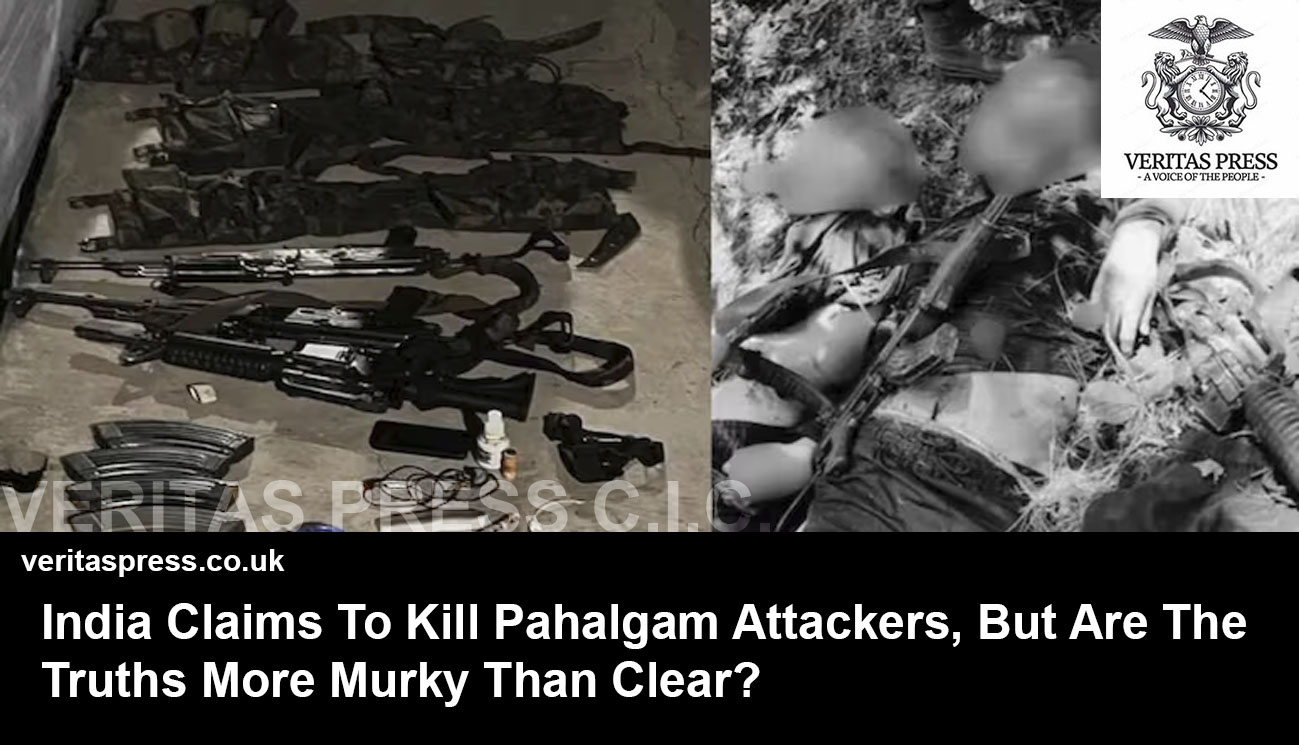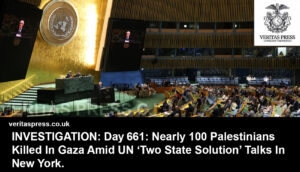Srinagar/New Delhi/Islamabad — India’s announcement that it has “eliminated” all three suspects involved in the April 22 massacre in Pahalgam has been hailed by the Modi government as a major counterterrorism success. Yet, beneath the triumphant tone of Home Minister Amit Shah’s declaration in Parliament lies a more complex, contested, and potentially dangerous narrative, one that raises questions about evidence, accountability, political optics, and the fragile state of India-Pakistan relations.
The operation, code-named Mahadev, reportedly neutralised three heavily armed men in the Dachigam forests near Srinagar on July 28. Indian authorities say ballistic tests, witness identifications, and recovered Pakistani identification documents tie them directly to the massacre of 26 civilians, mainly Hindu tourists, in Kashmir’s Baisaran Valley. Shah named the suspects as Suleiman, Afghan, and Jibran, asserting they were Pakistani nationals linked to Lashkar-e-Taiba (LeT), a group long accused of orchestrating attacks in Indian-administered Kashmir.
But as celebrations ring out in New Delhi’s ruling circles, independent verification remains elusive. Critics, analysts, and Pakistani officials are challenging the Indian government’s version of events, questioning whether India is delivering justice or simply crafting a politically convenient narrative amid mounting pressure to show results.
“Scripted And Strategic” Or “Security Success”?
“This has all the hallmarks of a staged encounter,” said Pakistan’s Foreign Ministry spokesperson Mumtaz Zahra Baloch in a strongly worded statement. “India has a long history of extrajudicial killings, especially in Jammu and Kashmir, where accountability is non-existent. The timing and the supposed forensic links should be treated with scepticism.”
Pakistan’s state-run Radio Pakistan went further, alleging that Indian forces might have pulled Pakistani nationals from prisons and executed them in a “fake encounter” to deflect domestic criticism and avoid a genuine investigation into the Pahalgam attack.
Former Pakistani Foreign Secretary Jalil Abbas Jilani told Dawn that Shah’s statement in Parliament “reads more like a script prepared for political mileage than a legitimate briefing grounded in verifiable evidence.” He questioned why India had not allowed international observers or third-party verification of its claims.
Human rights organisations in both countries have raised red flags. The Jammu and Kashmir Coalition of Civil Society (JKCCS), a prominent human rights group in Srinagar, stated that the encounter “follows a worrying trend of unverified claims used to justify killings without due process.” In a press release, the group demanded that bodies be identified through DNA testing by independent forensic experts and returned to their families if possible.
Weapon Trails And Witnesses: Questions Of Authenticity.
India claims the attackers’ weapons, a Romanian AK variant, a Russian-modified AKM, and an American M4 Commando, were matched to cartridge shells from the Pahalgam site. Shah asserted the rifles were flown to Chandigarh for testing and “confirmed without a doubt.”
But investigative journalist Saeed Naqvi raised concerns about transparency: “We’ve heard these claims before, ballistics matched, chocolates from Pakistan, Pakistani voter cards, but there’s rarely any credible, peer-reviewed forensic report made public. Where is the accountability in these high-stakes national security claims?”
Pakistan-based analyst Ayesha Siddiqa, a leading security expert, said the use of NATO-grade weapons like the M4 points not necessarily to Pakistan, but to “a broader and more shadowy arms trafficking network, perhaps involving non-state actors across Central and South Asia. To blame Pakistan without interrogating the pipeline is to sidestep serious geopolitical questions.”
Indian officials maintain that their evidence is solid. Intelligence sources cited by NDTV claim the suspects used encrypted communications, which were intercepted and traced to the Dachigam area. Locals who allegedly housed the men before the April attack have been detained and, according to Shah, positively identified the deceased.
But this, too, has drawn criticism. “What due process were those ‘locals’ subjected to?” asked Meenakshi Ganguly, former South Asia director at Human Rights Watch. “Are they being charged? Were they coerced? India owes the public transparency, not political theatre.”
Political Motive And The Shadow Of Elections:
For the Modi government, under fire from opposition parties for failing to prevent the April massacre, Operation Mahadev offers a convenient resolution. Shah’s announcement framed the killings as evidence of Modi’s “zero tolerance” for terrorism. Defence Minister Rajnath Singh claimed that India’s May military operation, featuring drone strikes and missile exchanges with Pakistan, had achieved “all strategic objectives,” brushing aside U.S. claims of brokering the ceasefire.
But political commentators argue the operation’s timing is telling. “We’re heading into a high-stakes electoral season,” said Praveen Swami, a veteran Indian defence correspondent. “The government needed a win. The Pahalgam case was a festering wound. The public needed closure, and the government needed vindication.”
Opposition leaders, including Congress MP Shashi Tharoor, have demanded an independent investigation. “It’s not enough to declare a victory. We need oversight. Were the men killed truly the perpetrators? Were diplomatic channels exhausted before the conflict escalated? The Indian people deserve answers.”
A Dangerous Spiral Of Denial And Retaliation:
Security analysts warn that India’s messaging, especially Shah’s claims that Pakistani-based “masterminds” were eliminated across the border, risks reigniting tensions. Islamabad has dismissed those assertions as “fabrications” and accused New Delhi of seeking escalation under the guise of counterterrorism.
“India and Pakistan may have narrowly avoided full-scale war in May,” said Moeed Yusuf, former Pakistani national security advisor, “but these tit-for-tat narratives feed a security dilemma. India’s unilateralism and Pakistan’s denials only deepen mistrust.”
The reality, said Indian peace researcher Radha Kumar, is that “Kashmir continues to be used as a pawn, by militants, by the military, by political elites. Until we create space for real justice and dialogue, the body count will grow, and truth will remain the first casualty.”
Conclusion: Truth In The Crosshairs, A Convenient Closure Or A Manufactured One?
India’s official narrative around the Pahalgam massacre and the subsequent killing of the alleged perpetrators in Operation Mahadev may serve immediate political ends, but it leaves critical questions unanswered and the broader conflict unresolved. In the absence of independent verification, transparent forensic disclosures, or third-party investigations, the Modi government’s claims risk appearing less as a triumph of justice and more as a carefully choreographed display of retribution designed to placate public outrage, deflect opposition criticism, and bolster its national security credentials ahead of elections.
This pattern, of attributing every major terror incident to Pakistani nationals, announcing their “neutralisation” in opaque operations, and rejecting all calls for accountability, has become a troubling hallmark of India’s counterinsurgency policy in Kashmir. As Pakistani officials, human rights organisations, and independent analysts point out, the lack of evidentiary scrutiny, the silencing of local witnesses, and the weaponisation of “encounters” as political theatre erode the credibility of India’s security apparatus and deepen the sense of impunity in the region.
Moreover, by declaring the case closed without independent oversight, New Delhi not only undermines the rule of law but also reinforces a dangerous precedent: that justice in Kashmir can be delivered at the barrel of a gun, without courts, without trials, and without questions. If this is the model of accountability being exported as a counterterrorism success, then it is not just Kashmir’s future that is at stake, but the democratic integrity of India itself.
In a region as combustible as South Asia, where national narratives are often shaped in the shadow of war and propaganda, the truth is not just a casualty; it is a target. The world should demand more than declarations from Parliament and staged photo-ops of seized rifles. It should demand transparency, impartial inquiry, and above all, justice that is seen to be done, not merely claimed.
Advertisement
Tags:





























Leave a Reply